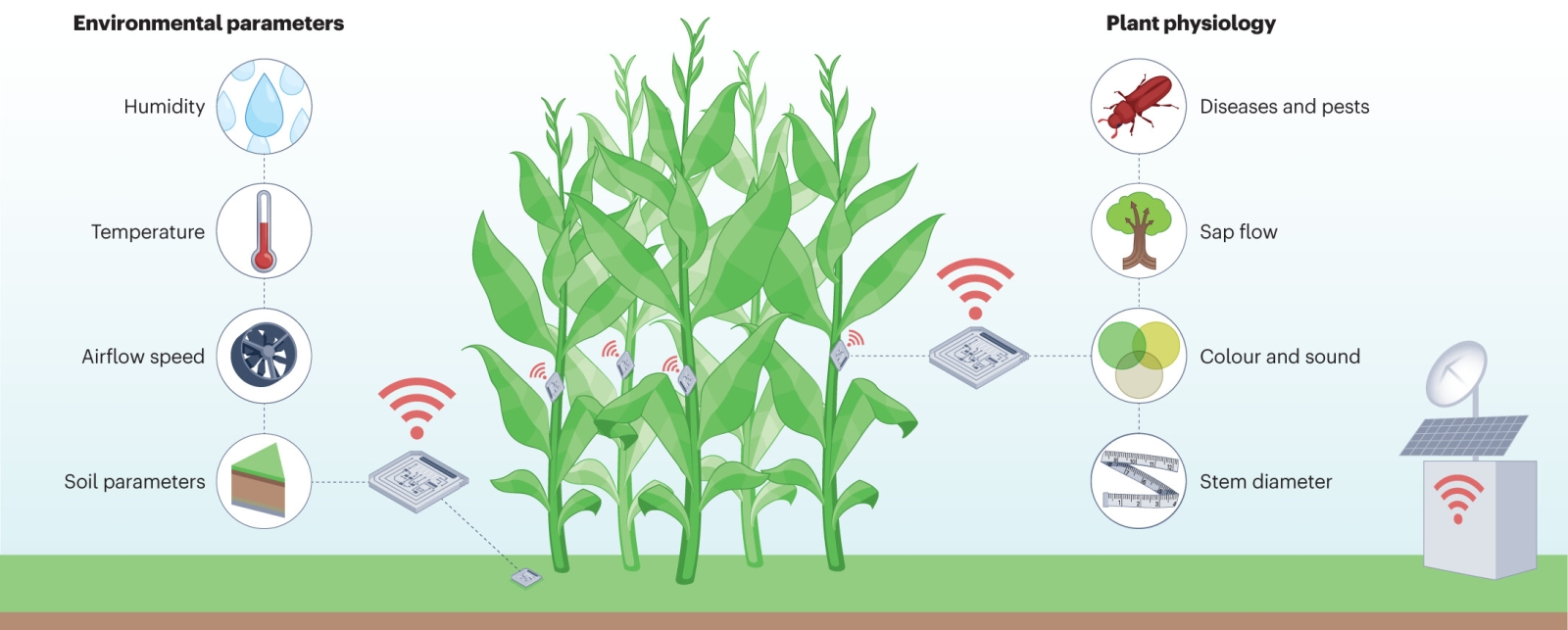August 03, 2023 | Nature Reviews Methods Primers |
In the study conducted by researchers from Delft University of Technology and Wageningen University & Research, the focus is on introducing the concept of the "Internet of Plants" (IoP), which is a network of sensors designed to enhance agricultural productivity, climate resilience, and resource efficiency. While sensor technologies have rapidly advanced in consumer electronics, their adoption in agriculture, even in modern greenhouse horticulture, has been slow. The IoP acts as the eyes, nose, and touch of farmers, providing data on environmental parameters and plant physiology that are crucial for optimizing crop production.
The study discusses the two main aspects of sensor technology in agriculture:
- Sensing Environmental Parameters: Sensors are employed to monitor atmospheric conditions, gas levels, soil moisture, and other environmental factors that affect plant growth. These sensors are essential for predicting and managing biomass production.
- Sensing Plant Physiology: Advanced sensors can provide real-time insights into crop responses to the environment, helping detect stressors that hinder plant growth. Examples include weight measurement devices, sap flow sensors, multispectral cameras, and more.
To enable dense sensor networks, ease of installation and operation are crucial. The study explores the use of wireless sensor networks, autonomous sensor modules, and energy-harvesting technologies. It also discusses the challenges and potential solutions for deploying sensors in the field without disrupting farming operations.
Effective implementation of IoP networks requires collaboration among plant scientists, farmers, electrical engineers, and sensor experts. Comprehensive studies using dense sensor networks are needed to determine the predictive value of various sensors and optimize crop growth conditions. The study predicts a gradual adoption of IoP networks in agriculture, leading to reliable and sustainable food production in the future.
In summary, the study highlights the potential of IoP sensor networks to revolutionize agriculture by providing real-time data for precise and sustainable crop management.
Read more: Sensors in agriculture: towards an Internet of Plants

Fig. | Envisioned architecture for the Internet of Plants. Sensor modules comprising environmental sensors, physiological sensors and dedicated electronics for power and communication are distributed throughout the crops and wirelessly connected to a central processor.





